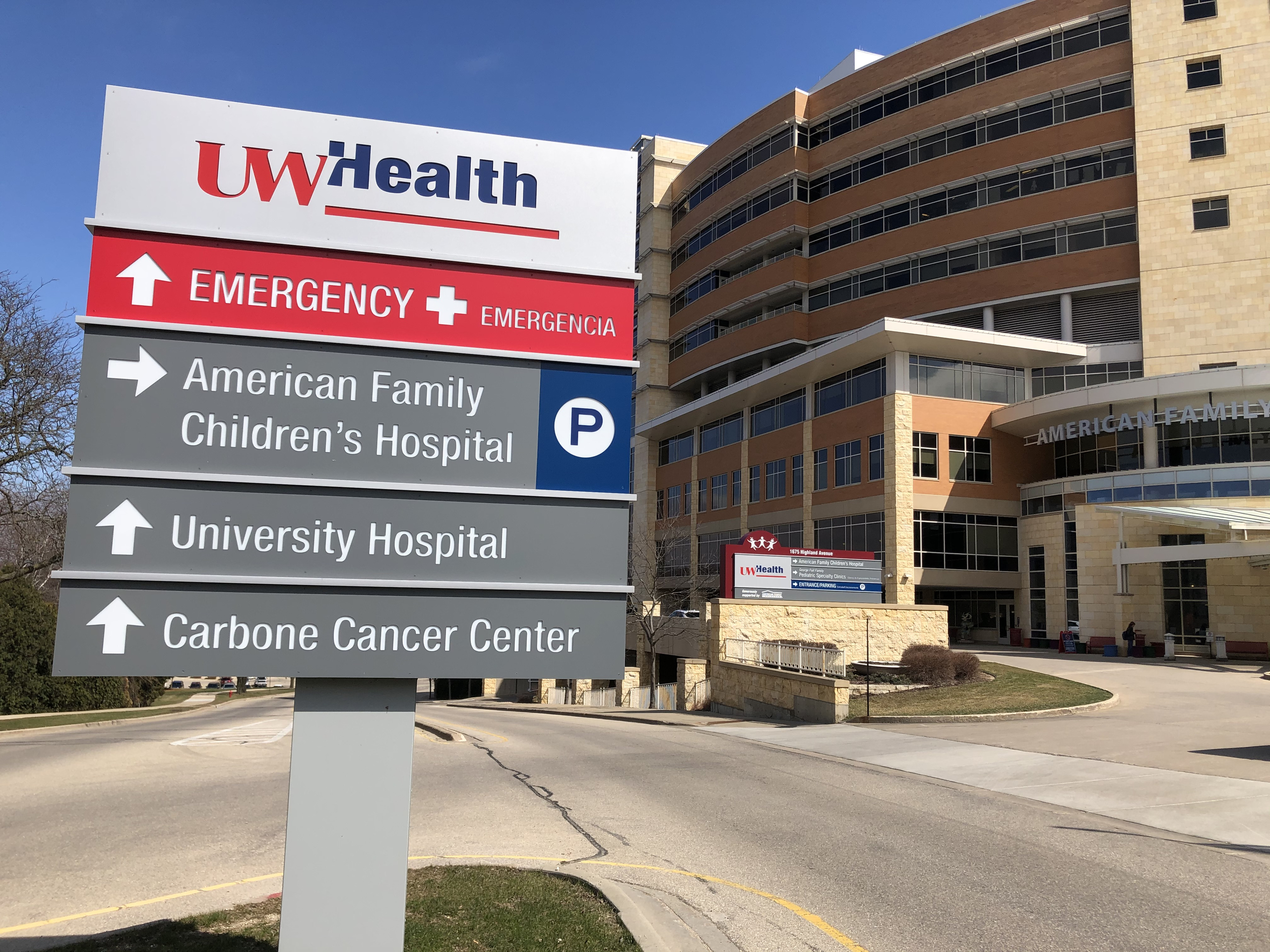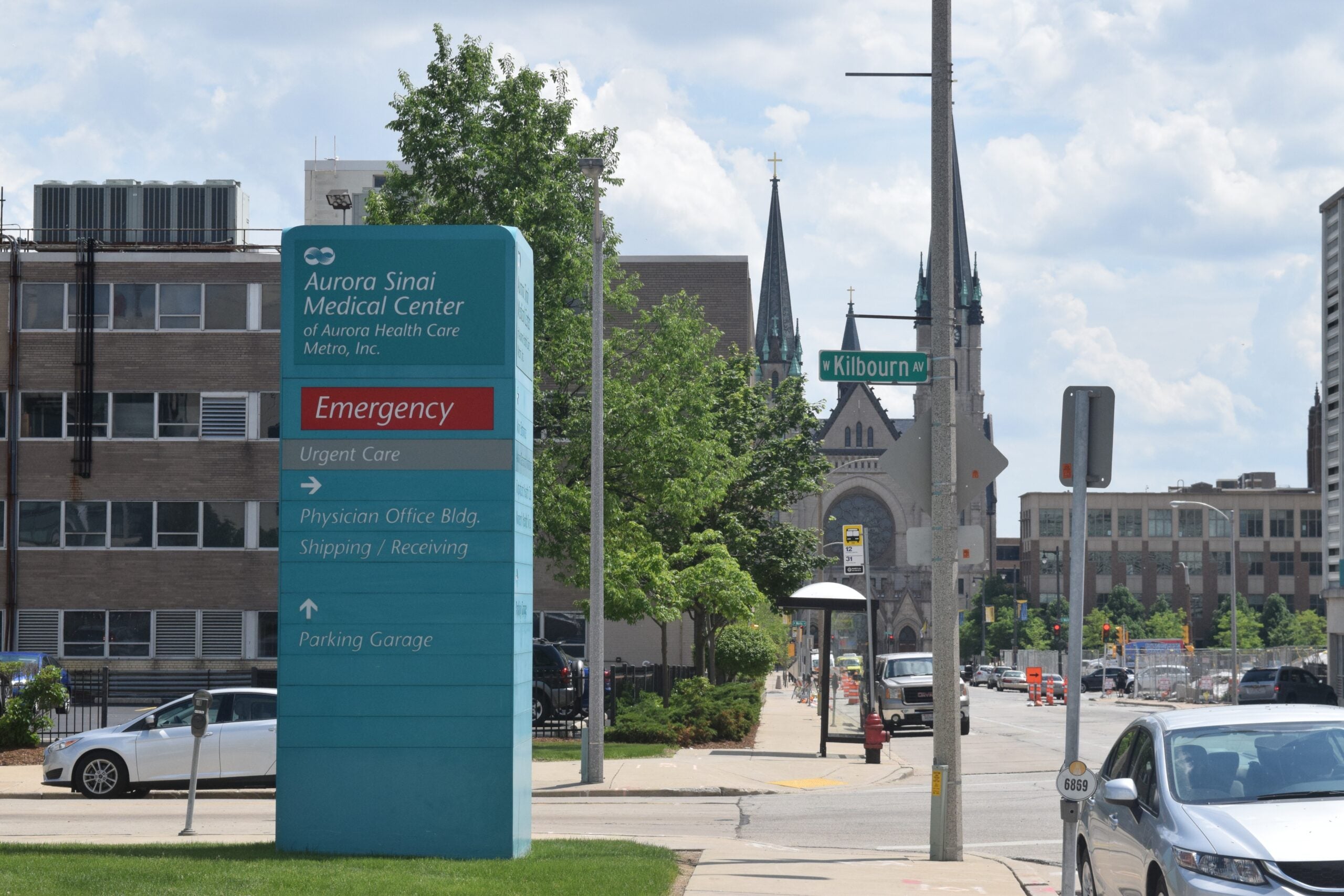Millions of Wisconsin residents will be affected by two separate mergers of nonprofit hospital systems that were finalized earlier this month.
Gundersen Health System and Bellin Health completed a merger on Dec. 1. The next day, Advocate Aurora Health and Atrium Health did the same. Together, the mergers will impact about 8.5 million patients across several states.
Bellin and Gundersen will keep their respective names for the time being, as well as separate headquarters in Green Bay and La Crosse, while Advocate Aurora and Atrium will become “Advocate Health.” Marshfield Clinic Health System and Essentia health also announced merger talks earlier this year.
Stay informed on the latest news
Sign up for WPR’s email newsletter.
The mergers come as hospitals are facing staffing and resource pressures. According to a report released in September by the American Hospital Association, anticipated profit margins would decrease 37 percent this year compared to before the COVID-19 pandemic, with over half of hospitals operating at a deficit.
Hospital officials say the deals are aimed at improving patient care, and stem from organizations sharing similar missions and visions. But the mergers also have the potential to give hospitals more leverage to negotiate for higher prices with insurance companies.
Bellin and Gundersen CEO Scott Rathgaber said financial goals and performance were not the motivating factor in the merger.
“This is not a merger of necessity, where one of us needed to be saved,” he said.
Chris Woleske is executive vice president at Bellin and Gunderson and regional president of Bellin. She said the merger stemmed from past collaboration between organizations and shared values.
“When you lay our mission statements next to each other, the words that are used in our respective mission statements are so similar, and they really reflect this commitment to quality, to experience and to affordability,” Woleske said.
In the case of Advocate Health, a spokesperson said in a statement the merger aims to bring benefits to patients and boost health outcomes.
“We’ll use our combined strength and expertise to work to deliver better outcomes at a lower cost,” the statement read. “Patients can continue to count on their trusted doctors and clinical care teams at the convenient locations they’ve always visited.”
However, University of Wisconsin-Madison Economist Alan Sorensen said mergers may give hospitals more leverage in negotiations with insurance companies.
He said insurance companies want to pay as low a price as they can negotiate, while health care providers want to get paid as much as they can negotiate.
“Those negotiations are enormously important for the bottom lines of these companies,” Sorensen said. “A lot of times what’s driving the mergers is that (hospital systems) feel like if they’re bigger, they’ll do better in those negotiations, they’ll have more bargaining power, they’ll be more indispensable to the insurance company.”
If health systems can negotiate for higher rates, he said, it could raise prices for patients.
“If the insurance companies have to pay higher prices to the hospitals, some of the increase is going to get passed through to the consumer in the form of higher insurance premiums,” Sorensen said.
Last month, the Milwaukee Business Journal reported that Advocate Health would increase costs for hospital room stays in the Milwaukee area between 5.3 percent to 5.5 percent in 2023, depending on the facility.
While health care mergers have the potential to increase costs for patients, they could also enhance services, Wisconsin Hospital Association Vice President of Finance and Chief Operating Officer Brian Potter said in October.
“Different systems have different expertise and services,” he said at the time. “Some may have specialists that the other system had a hard time getting, so now they can coordinate that coverage.”
Woleske said Bellin and Gundersen hope to share their respective expertise, as well as pool resources to invest in technology.
“I think patient care will be enhanced by that kind of expanded group of specialists covering the entire region that Gundersen and Bellin serve,” Woleske said.
The balance between enhanced patient care and potential price increases is at the center of litigation when hospital mergers are challenged by antitrust authorities, Sorensen added.
“The lawsuits all boil down to an argument over will this merger result in efficiencies or changes that are, in the end, good for patients? Or is this merger just going to result in higher prices? Economists and lawyers get paid lots of money to fight over these things,” he said.
Although time will tell the impacts of the recent mergers, hospital officials say they hope to minimize immediate impacts to patients.
“The clinicians and staff (whom) patients know and trust will still be at the same locations they are today,” Rathgaber said. “The events we support will continue to enrich our communities. And the deep roots we have established in our communities will continue.”
Wisconsin Public Radio, © Copyright 2025, Board of Regents of the University of Wisconsin System and Wisconsin Educational Communications Board.





